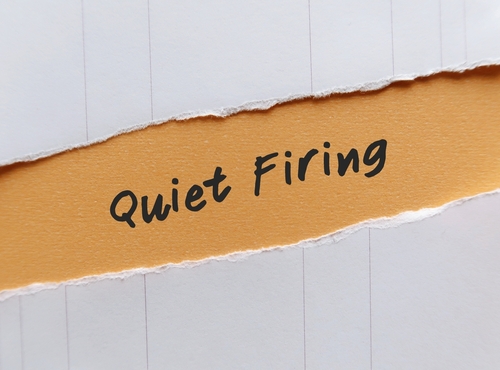Until recently, most people weren’t familiar with the concept of (or even the term) “quiet quitting.” Thanks to remarkable media buzz around the subject, employees’ doing just enough on the job but not going above and beyond is now part of the common parlance of corporate America.
But those who think they’re up to speed on the latest workplace jargon have a new concept to learn: quiet firing.
Moved to the Sidelines
That’s right. It’s not just employees who can passive aggressively shirk responsibilities while avoiding addressing concerns with the employment relationship.
As Jonathan Small explains in an article for Entrepreneur, “Put simply, quiet firing is when employers intentionally treat you badly so that you will leave your job. It’s sort of like someone who wants to break up with but doesn’t have the courage to do it themselves.”
This could take the form of being regularly passed over for promotions, being assigned tedious work that’s below one’s job level or capabilities, or being left out of major initiatives. In other words, employers sideline employees they don’t want anymore in the hopes the workers will just quit.
Employers at Risk of Negative Brand Impact
Quiet firing may seem like an easy solution to avoiding an awkward conversation with an employee, but it doesn’t do anyone any good in the long run. Obviously, quiet firing can be a long, drawn-out and miserable process—for the employees being forced out, the manager who has to continue the charade throughout the process, and the company that continues to pay workers who aren’t being asked to contribute to their full potential.
While it may be uncomfortable to have discussions with employees around negative performance or termination, being direct and upfront is almost always preferable to subtle tactics like quiet firing.
Perhaps a frank discussion with the employee would be enough to turn his or her performance around. If not, being direct and ending the employment relationship at least saves everyone a lot of time and pain.
Lin Grensing-Pophal is a Contributing Editor at HR Daily Advisor.

